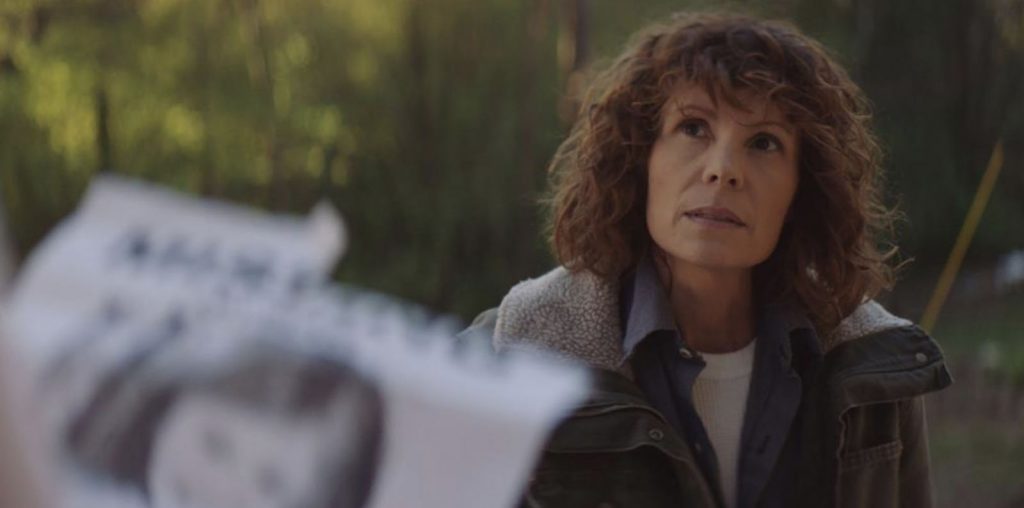
There’s a fairly reasonable rule of objectivity in film criticism that suggests that a movie should stand on its own, separate from the circumstances of its creation or the person who made it.
But rules, of course, are meant to be broken, and in the case of Unmarked, this one seems particularly worth tossing out for the moment. Why? The reason is a simple, but hard to argue with: Alec Ybarra, the film’s star, director, editor, and screenwriter, was only 13 years old (!) during its production.
You’ve got to give the kid credit. It’s true enough that, once the means to make movies were made available to them, plenty of precocious young pups have picked up Super-8 cameras, VHS camcorders, and now, ubiquitous smartphone cams to play around at being pint-sized Spielberg (heck, Steven Spielberg did it himself). Not many, however, can claim to have completed a full-blown, releasable short feature by the time they were old enough to join a high school AV club. And Unmarked (which did enlist the assistance of a professional director of photography, Dan Nimmo) isn’t some rinky-dink backyard superhero movie or a YouTube-style comedy goof. It’s an obvious passion project that channels a painful incident from Ybarra’s recent past into a film whose reason for existing goes well beyond “hey, look what I can do”. As a message movie, Unmarked can’t be held to the standards of adult filmmakers’ more sophisticated, developed takes on similar material, but the fact that it has a clear message at all still suggests that Ybarra is mature beyond his years.
“…his struggle with a bullying classmate that, later, snowballs into a devastating school-wide incident.”
The film is a semi-autobiographical tale of likable, innocent middle-schooler Alec (played by Ybarra) and his struggle with a bullying classmate that, later, snowballs into a devastating school-wide incident when his antagonist’s mom (Tamara Hutchins) turns the tables and accuses Alec of bullying her son. What the movie never quite makes clear is why every single teacher, office staffer, and administrator in the school immediately sides with the manipulative mom and turns against Alec; the notion that adults are unfairly perceived as more trustworthy than children is really taken to the extreme here.
Alec’s increasingly desperate efforts to get across his side of the story become almost Kafkaesque in the way they’re distorted to make him look like the bad guy, serving only to bury him deeper and deeper in contempt and punishment from the powers that be. It turns out that the adults are the real bullies in Unmarked, and while that point is exaggerated far beyond believability (the assistant principal, played by Batya Cruz, is a meaner “mean girl” than you’ll see in any high school comedy), there’s at least a kernel of insight evident in one of the film’s key ideas: the way in which the term “bullying” can be wielded like a club in today’s exceedingly cautious school environments, and the collateral damage that such over-sensitivity can sometimes cause.
Given its histrionic, one-sided portrayal of the issues at hand (which, again, you can easily chalk up to its creator’s age and closeness to the experience that inspired it), Unmarked might be tough to take as a serious drama, but Ybarra does deserve credit as a writer and director for avoiding some of the pitfalls that rookie filmmakers of all ages are susceptible to. The film’s tone is very consistent throughout, characters don’t inexplicably change their motivations or behavior from scene to scene (looking at you, Tommy Wiseau), and the story is focused enough to avoid throwing in any extraneous supporting players or subplots (looking at you again, Tommy Wiseau). Ybarra even hits upon a few keen observations about growing up in the modern era, such as a scene in which a cafeteria full of kids all pull out their phones to passively live stream a scuffle between classmates rather than intervening or even egging it on.
“…hits upon a few keen observations about growing up in the modern era…”
So, with all of that said – and with acknowledgment of Ybarra’s good intentions and, of course, the overall accomplishment that completing a feature film represents – does Unmarked have anything to offer an adult audience beyond the novelty of seeing a movie almost entirely shepherded by an adolescent filmmaker? The short answer is “not really,” but there is one element that might be worth a look for viewers of a particular stripe. Top-billed actress Hutchins, playing the detestable mother of Alec’s bully, delivers a camp-classic performance for the ages, and the film really lights up whenever she’s on screen. Her character essentially serves as the movie’s chief antagonist, and the actress clearly relishes every opportunity she’s given to craft a sneeringly over-the-top villain for the audience to boo and hiss at – the dramatic gusto with which she, for example, swipes through text messages on her son’s smartphone (which, actually, turns out to be one of the film’s key plot points) is not soon to be forgotten. To say that Hutchins gives it her all is a gross understatement, and any viewer who happens to catch Unmarked is bound to want to see her chew scenery in, perhaps, a more self-aware project; screen presence like hers deserves to be appreciated wherever it can be.
Aside from that, though, Unmarked is probably best left for younger viewers – either those who might see some glimmer of their own experiences in Alec the character or, maybe even better, some creative inspiration in Alec the filmmaker. The movie justifies its own existence not only as an outlet for a kid who’s clearly been through some rough times he didn’t deserve, but also as an example of how anyone – regardless of age – can benefit from the possibilities that the medium of film affords.

Unmarked (2018) Written and directed by Alec Ybarra. Starring Tamara Hutchins, Alec Ybarra, Darcy Orrok, Kyle Gray, Batya Cruz, Adam J. Cahn, Pam Renall, Kevin Durkin.
5 stars out of 10
https://www.youtube.com/watch?v=TL7UlWPA_3c


